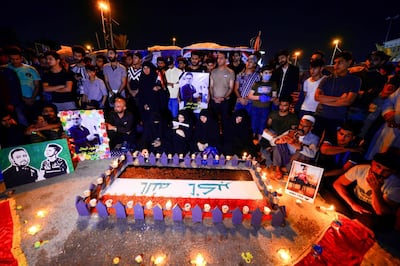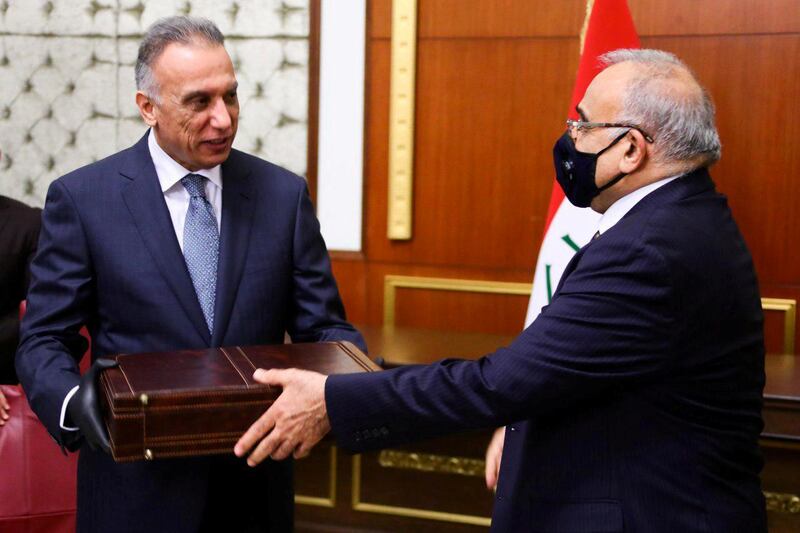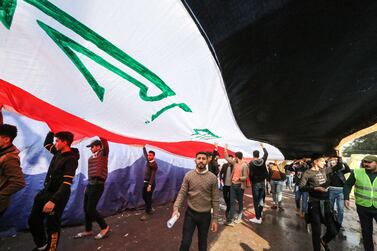After more than five months of wrangling, Iraq finally has a prime minister. A former intelligence chief with a track record for defending civic rights, Mustafa Al Kadhimi's profile stands in stark contrast to that of former prime minister Adel Abdul Mahdi, who led a brutal crackdown on protesters last year that cost hundreds of young people their lives.
A largely pro-Iranian parliament has reluctantly approved 15 out of 22 ministers in Mr Al Kadhimi’s newly-formed Cabinet, leaving five seats, including the strategically important oil and foreign ministries, empty for the time being.
Despite pushback from pro-Iran factions, for the first time in years, Mr Al Kadhimi has a chance to effect the change that his country so desperately needs. And under his leadership, Iraq has a better chance at being able to steer a course protecting its sovereignty. A confluence of political, economic and societal crises face the new government. Mr Al Kadhimi can count on Arab neighbours to help it in dealing with them. On Friday, Saudi Arabia and the UAE extended their support to the Prime Minister, with Abu Dhabi expressing a “keenness to widen co-operation and relations with Iraq across all fronts.” Jordan’s King Abdullah was among the first to call Mr Al Kadhimi once he was sworn in. Building strong ties with Arab nations will be crucial for Iraq to build its regional position, push back against Iranian meddling and support its economy.
US-Iran tensions have played out more intensely in Iraq since the killing of the head of Iran’s elite Al Quds Force, Qassem Suleimani, in Baghdad in January. This has left Iraq further struggling to balance its own relations between both sides of the conflict. Strengthening ties with other Arab powers can only be a stabilising factor for the region and an opportunity for Baghdad to restore balance against Iranian influence.

Iraq must extricate itself from Iran’s grip and successfully curb the influence of Tehran’s many powerful militias on the country.
These militias, which have considerable representation in parliament through a number of political blocs, have festered in a failed system in which corruption, violence and sectarianism rule – and against which the Iraqi people have risen up since October of last year.
Mr Al Kadhimi’s challenges are immense. Iraq has yet to recover from decades of violence that have left its infrastructure in tatters. One in four Iraqis live below the poverty line despite the country’s wealth of oil and its host of religious and cultural treasures.
Iraq’s battered healthcare system is grappling with the coronavirus pandemic, which has had an adverse effect on the country’s economy. With demand for oil suppressed due to worldwide lockdowns, prices have gone down, taking a toll on the government’s revenues and even its ability to pay its employees and pensioners.
These ongoing issues pave the way for more protests to come. Demonstrators should not have to risk their lives to make their grievances heard, as was the case under Mr Abdul Mahdi’s rule. Heeding the demands of protesters, mainly for better governance, job opportunities and sovereignty, but also for those who have shed Iraqi blood to be held accountable for their crimes, is pivotal. These unsolved issues are what led to the former government’s demise. Mr Al Kadhimi's new cabinet now has a chance to make things right for Iraq. It will be an uphill struggle but a worthy one to give its people the dignity they have always deserved.






